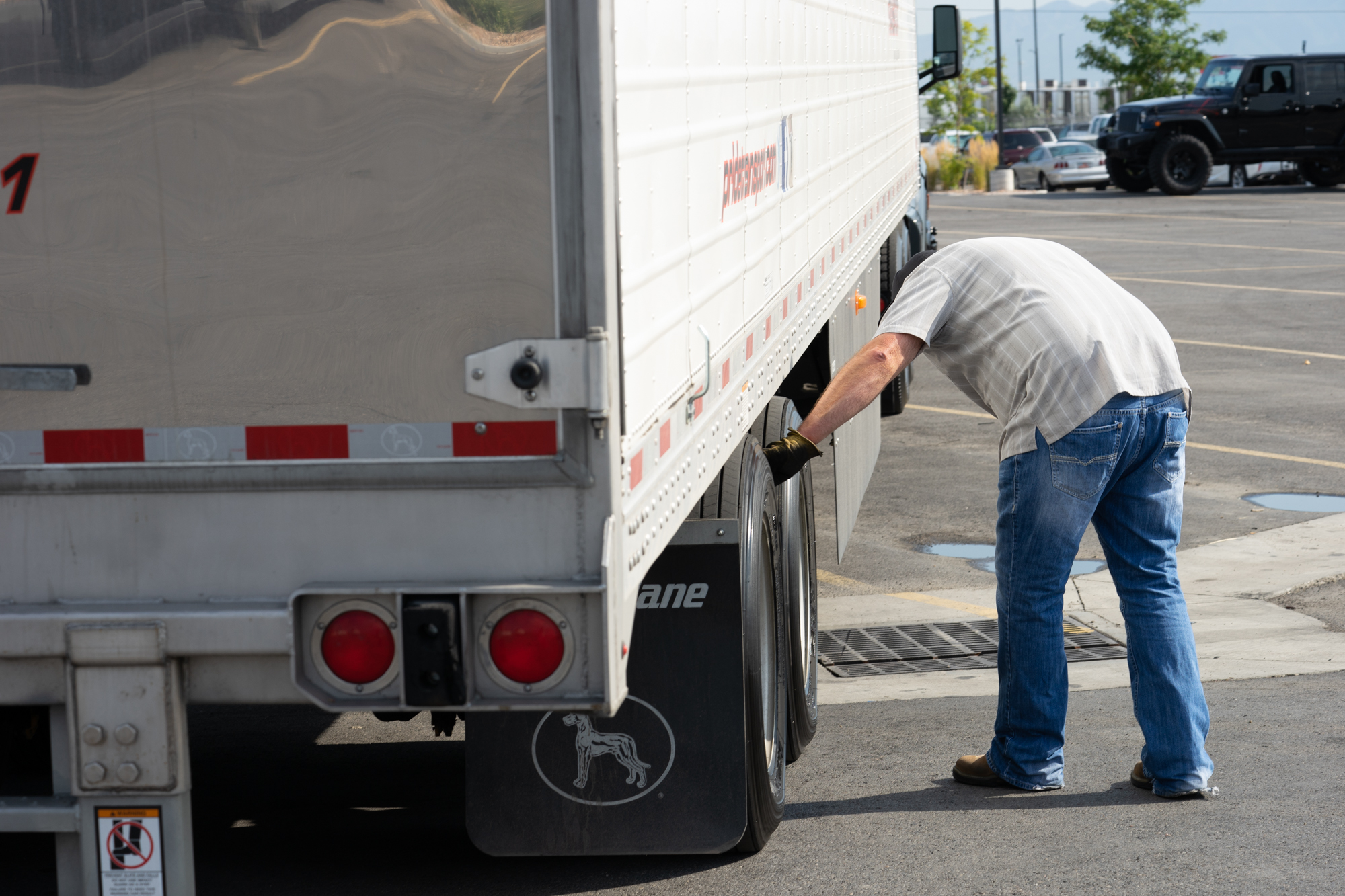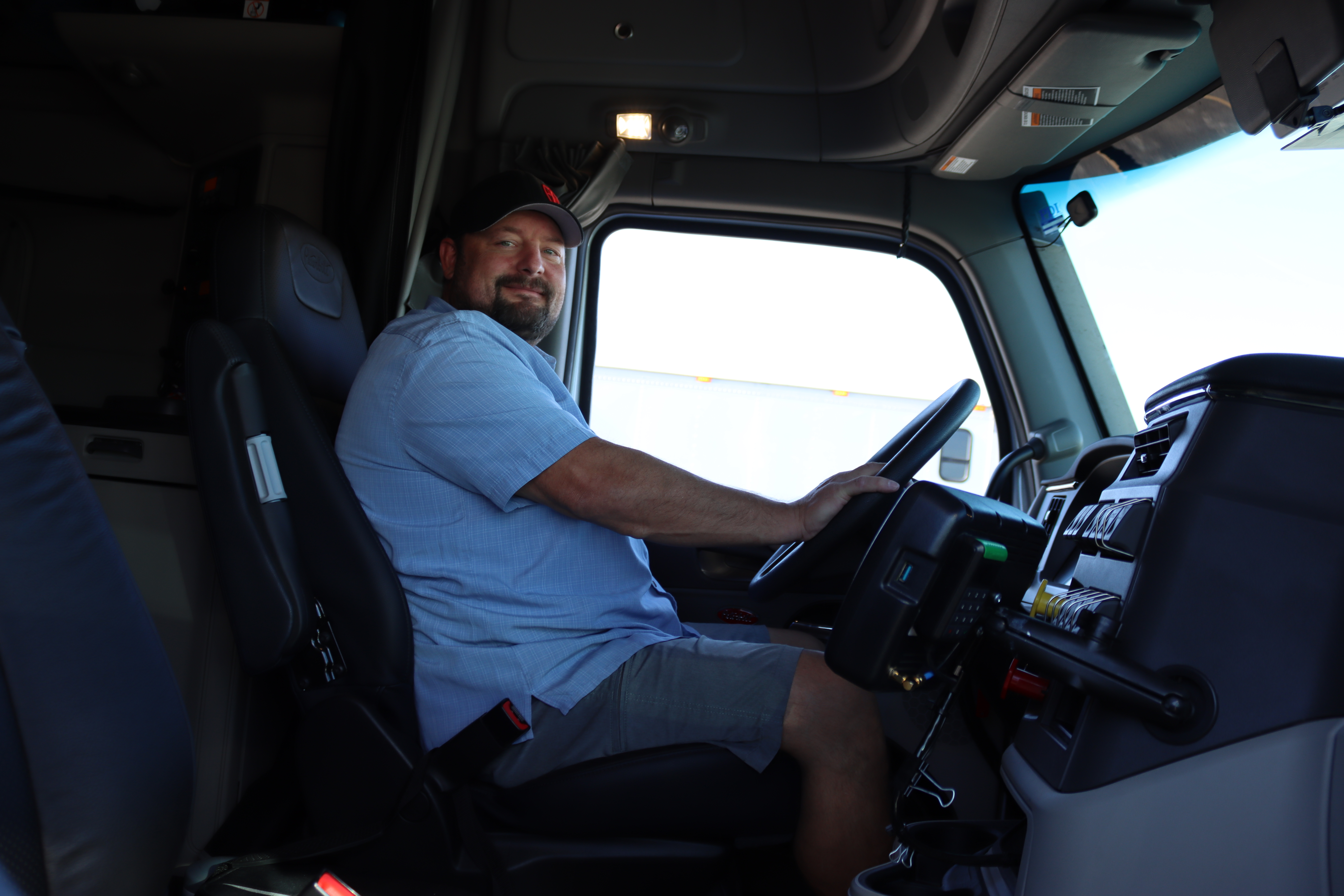by Pride Transport | Jul 04, 2024
Driving a truck is a great career, but it comes with some risks. Emergencies can, and sometimes do, happen. In fact, truck drivers can face a number of serious problems on the road ranging from issues related to vehicle maintenance to crashes or unexpected weather events.
Fortunately, if you prepare for a worst case scenario, you’ll be more likely to handle it with grace when it does happen. Try your best to stay on top of some of the problems you could run into and learn how to come out safely on the other side.
Common Emergencies Faced by Truck Drivers
Being on the road so often, truck drivers may find themselves dealing with an emergency. Here are some of the most common emergencies that come up and what you can do to prepare.
Vehicle Breakdown Preparedness
Keeping your vehicle in good shape can help prevent breakdowns. Before every trip, you should do a pre-trip inspection and check your vehicle for signs of wear and tear. You should also ensure maintenance is performed on time, every time, to ensure vehicle safety.
Even with the best intentions, breakdowns can happen. Some things you’ll want to keep with you include:
- Tools to make minor repairs
- A first-aid kit in case of minor cuts or wounds
- Commonly needed spare parts
- Safety equipment, such as gloves, flares, and other items
After you pull your vehicle over to the side of the road, turn on your hazard signals. If you have additional signage, place it down the road so oncoming traffic is aware that your vehicle has broken down. A flare can be used in some cases, particularly in the evening or at night.
Once you know you and your vehicle are in the safest position possible, call for roadside assistance or company support.
Accident Preparedness
Accidents on the road are fairly rare, but with so many potential causes, you have to place a heavy focus on safety. You have control over several common factors in truck crashes, such as speeding, drinking and driving, and paying attention to the road. But others, such as drivers who cut you off or who run into you, aren’t something you can necessarily avoid.
If you do get into a crash, you have to take immediate action. You should:
- Make sure everyone at the scene is safe. If anyone has injuries, including yourself, call 911 or contact emergency services for support.
- Gather up evidence to explain the crash. For instance, you may want to take photos of the scene, gather documentation (such as insurance information), and collect witness information if you can.
- Report your accident. You will need to report it to your company and your insurance provider.
Health Emergencies
Health emergencies can quickly become problematic when you’re behind the wheel of a semi-truck. However, if you can recognize the early signs of serious health problems, you can prevent crashes by pulling over and calling for help.
Common health emergencies and their early symptoms include:
- Heart attacks: shortness of breath, tightness or pressure in the chest, and pain down the left shoulder and arm, jaw, teeth, upper stomach, and armpit.
- Deep vein thrombosis (DVT): swelling in the legs or arms, color changes in the affected limb, warm skin, and pain or a lower leg cramp.
- Allergic reactions: itchy, watery eyes, rashes, vomiting, diarrhea, swelling, pain, throat closing, chest tightness, wheezing, feeling faint, and a sense of impending doom.
- Asthma attacks: coughing and throat irritation, excess mucus in the throat, wheezing, tightness in the chest and throat, trouble breathing.
- Diabetic emergencies, hypoglycemia: excessive sweating, clammy skin, drowsiness, dizziness, confusion, unresponsiveness, and seizures.
- Diabetic emergencies, ketoacidosis: excessive thirst, weakness, fatigue, confusion, high blood sugar levels (300 mg/dL or 16.7 mmol/L for more than a single test), fruity breath.
Always keep any emergency medications you need, such as epinephrine, albuterol, insulin, or a glucagon, with you in your vehicle. If you need help, call 911 right away. You should take care of yourself first then contact your company when you’re medically stable.
Natural Disasters
When you’re on the road, you always have to be aware of the weather. In a vehicle like yours, you are behind the wheel of tens of thousands of pounds that could quickly cause serious injuries.
Prepare for the weather by listening to a weather radio or getting used to looking up the day’s weather forecast before you start your route. Be aware of any unusual weather activity that can happen where you’re traveling, whether you’re at a higher risk of running into earthquakes, tornadoes, hurricanes, or other natural disasters.
As a part of your prep, get to know the steps to take if you do get caught in bad weather. For example, you may need to pull over to the side of the road until heavy rains stop, or you might need to buckle in and put your head down below the windows of your vehicle if a tornado is nearby.
Keep in communication with your dispatcher and have a communication plan in place in case you lose contact through typical means (such as your radio or mobile phone).

Staying Safe and Communicating on the Road
Safety and communication are essential when you’re working on the road. Regular safety training is one of our key requirements at Pride Transport. We believe in representing the best of the trucking industry and having drivers who also believe in being safe and communicating well with others.
Regular safety training can help prevent accidents, injuries, and deaths caused by collisions. With safety training, you learn how to react in hazardous or upsetting emergencies, making it more likely that you’ll respond correctly and get yourself and others out of harm’s way.
But training isn’t enough on its own. You also need to know how to communicate with your dispatcher and company, emergency teams, and other people around you. For emergency communication, we recommend following your company’s communication protocols but also using GPS, mobile apps for emergency services if needed, and having an updated list of emergency contacts ready. By preparing in advance for what could happen, you can be in a better position to make good decisions if an emergency occurs.
Preparing for Emergencies: Tips for Staying Calm
During emergencies, it’s very important to stay calm even if you’re nervous, upset, or frightened. By doing so, you’ll be able to focus and take action to quickly get out of harm’s way or to help others who need assistance.
Top Techniques for Managing Stress and Anxiety
If you are involved in an emergency, your priority is to stay calm and seek help.
- Know what you need to do. Preparing in advance with a step-by-step emergency plan can help you stay calm when the worst-case scenario happens.
- Use breathing exercises to calm your body and mind. Deep breathing helps stimulate the parasympathetic nervous system, which can help bring down the heart rate and your blood pressure.
- Use mindfulness practices such as meditation or even mindful eating, which can help you feel healthier and more balanced.
Mental Health Resources
These mental health resources can give you more information on how to handle the stress that comes with the job, emergencies on the road, and other issues you may run into.
- Acentra Health
- Mutts 4 Trucks
- National Alliance on Mental Health
- Substance Abuse and Mental Health Services Administration
- The National Suicide Prevention Hotline
Build Your Driving Skills and Career at Pride
At Pride Transport, we believe that emergency preparedness can help you be safer on the road and prevent serious crashes and other kinds of emergencies. Our team is made of the safest drivers and best equipped trucks, ensuring you can get to your destination safely. Ready to join the team? Apply now.
